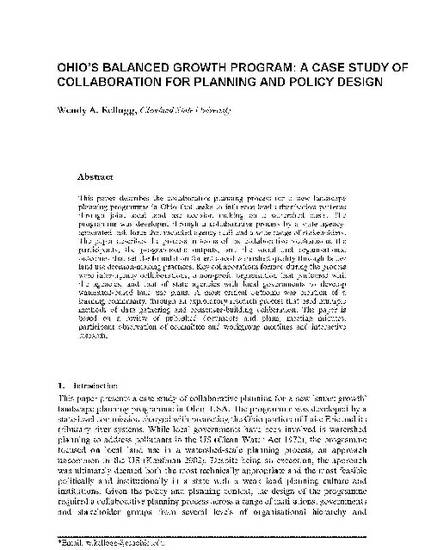
This paper describes the collaborative planning process for a new landscape planning programme in Ohio that seeks to influence land urbanisation patterns through joint local land use decision making on a watershed basis. The programme was developed through a collaborative process by a state agency-appointed task force that included agency staff and a wide range of stakeholders. The paper describes the process in terms of the collaborative mechanisms, the participants, the programmatic outputs, and the social and organisational outcomes that set the foundation for enhanced watershed quality through better land use decision-making practices. Key collaborations formed during the process were inter-agency collaborations, a non-profit organisation that partnered with the agencies, and that of state agencies with local governments to develop watershed-based land use plans. A most critical outcome was creation of a learning community, through an exploratory research process that used multiple methods of data gathering and consensus-building deliberation. The paper is based on a review of published documents and plans, meeting minutes, participant observation of committee and workgroup meetings and interactive research.
